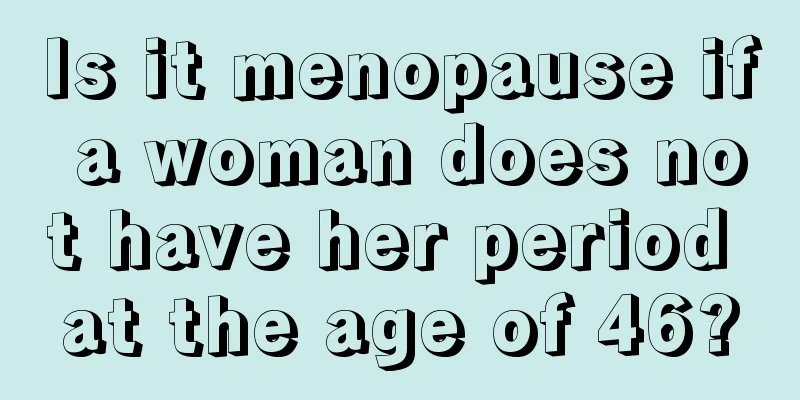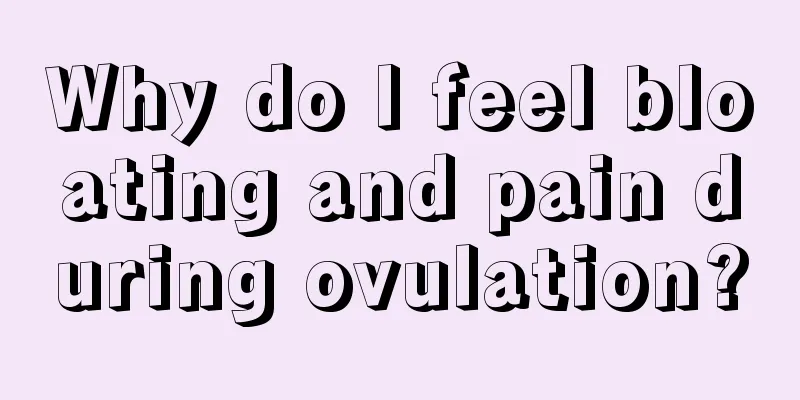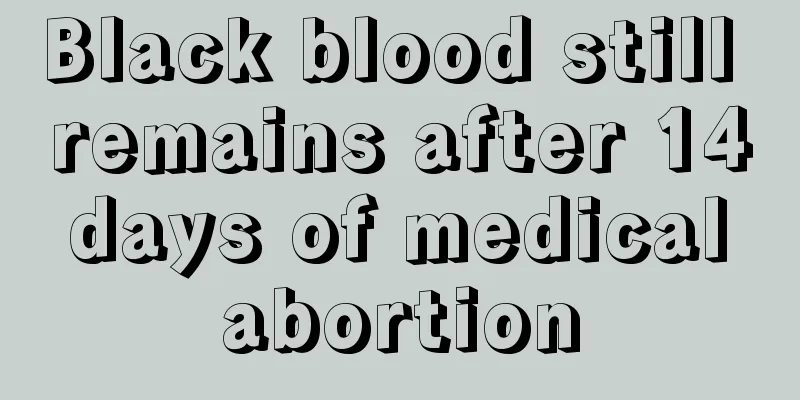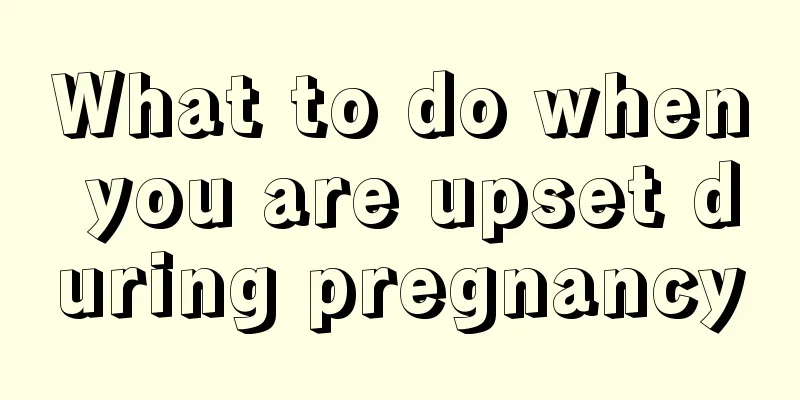Is it menopause if a woman does not have her period at the age of 46?

|
If a 46-year-old woman does not have her period, but does not have an IUD for contraception and does not use any other contraceptive methods, the first thing to consider is the possibility of pregnancy. If you are not pregnant, then you need to consider it as a manifestation of menopause. However, some women may also experience menarche three months after amenorrhea. The main consideration is that the uterine and ovarian endocrine nerve dysfunction leads to menstrual disorders caused by the absence of ovulation. However, since it is menopause, it is also a normal manifestation. In clinical medicine, menopausal syndrome refers to the physical and mental abnormalities caused by decreased estrogen metabolism, decreased estrogen secretion, or fluctuations in estrogen secretion in women before and after menopause. The main symptoms are mood swings, depression, irritability, or night sweats, hot flashes, fatigue, and lack of energy to do anything. Menopausal syndrome can be divided into natural menopause, which refers to the gradual decline of ovarian function, and after the decline, menstruation stops. Artificial menopause is caused by the cessation of menstruation due to tumor radiotherapy or some other reasons, such as the surgical removal of the uterus and ovaries, which reduces female hormones. Drug treatment. 1. Under normal circumstances, HRT (growth hormone replacement therapy) should have the overall goal of maintaining the body's physical and mental health. Long-term medication is required to prevent postmenopausal degenerative diseases. (1) Etiological treatment: During the growth period, women's blood undergoes regular changes in estrogen and progesterone, which participate in coordinating the body's physiological activities and become the key factors in stabilizing the extracellular fluid of women and maintaining physical and mental health. After menopause, due to the continuous decline of estrogen and progesterone, the female body and mind are unbalanced, and the body undergoes a series of degenerative changes, resulting in poor physical condition for some women. Provide etiological treatment for these health problems caused by estrogen deficiency. (2) Physiological supplementation: The purpose is to enable the internal organs of postmenopausal women to function physiologically as much as possible to maintain the body's physical and mental health, rather than to restore their endocrine conditions to the level of the ovarian cycle during the growth period, that is, physiological supplementation. Physiological supplementation is mostly believed to use natural estrogens, which have the chemical structures of estrone, estradiol and estriol. The dosage should be controlled so that the blood E2 concentration is around 220pmol/L, or within the very estrogen-specific range, and should not exceed 550pmol/L. Exceeding this level may lead to an increase in side effects, because the amount of estrogen and progesterone used in emergency contraception is large, the specificity is strong, and the chemical structure is non-physiological, which is not suitable for physiological supplementation in HRT. (3) During the menopausal buffer period, HRT should be dominated by estrogen supplementation: During the menopausal buffer period, the barrier to egg development gradually increases, and eventually the functional eggs disappear from the uterus and ovaries. The relative estrogen and oestrogen changes during this period are: first there is a relative deficiency of estrogen, then deficiency; the lack of estrogen changes regularly, although there may be a transient relative excess, the total output gradually decreases, and finally to deficiency, resulting in a relatively excessive or single unresistance estrogen stimulation for a long time, some women may have varying degrees of proliferative changes in the uterine wall, and even deterioration. Therefore, during this period, regular estrogen supplementation is necessary to regulate the physiological cycle and prevent endometrial hyperplasia and space-occupying lesions. As estrogen gradually becomes deficient, estrogen can be supplemented. |
<<: Can women with amenorrhea still get pregnant?
>>: Can a woman still have a baby at 45?
Recommend
Can I eat pumpkin porridge during confinement?
In fact, many people feel confused during the con...
What are the benefits of eating dried longan for women? How to preserve dried longan
Longan is rich in glucose, sucrose, protein and o...
What should you prepare for during early pregnancy?
There are many things to pay attention to in the ...
Six subtle changes in women's ovulation period
In life, there are many special manifestations du...
What is the disease of hair loss in women
For female friends, have you ever had this experi...
How to make your nose smaller? Have you ever done this?
Everyone thinks that a tall nose is more elegant,...
Why does a pregnant woman have dry mouth?
In autumn and winter, because the weather is rela...
Why do some people smoke all their lives but never get lung cancer? New research reveals the truth
It is an indisputable fact that smoking is harmfu...
What tests should pregnant women take to check for calcium deficiency?
For the special group of pregnant women, it is ne...
Can Bactroban be used to clean the genitals?
Bactroban is an external application cream with a...
The reason why women are healthier if they touch their breasts more
I believe everyone knows the importance of breast...
Can I drink lemonade after eating hot pot? What does lemonade taste like?
Lemonade, generally referring to water with lemon...
Women always feel cold when sleeping at night
What is the reason why women feel cold when they ...
A 3-year-old boy died after being bitten by a dog. Why did he get sick after being vaccinated with rabies vaccine?
Recently, the news that a 3-year-old boy in Henan...
Why do pregnant women bleed?
The body of a pregnant woman needs special protec...









